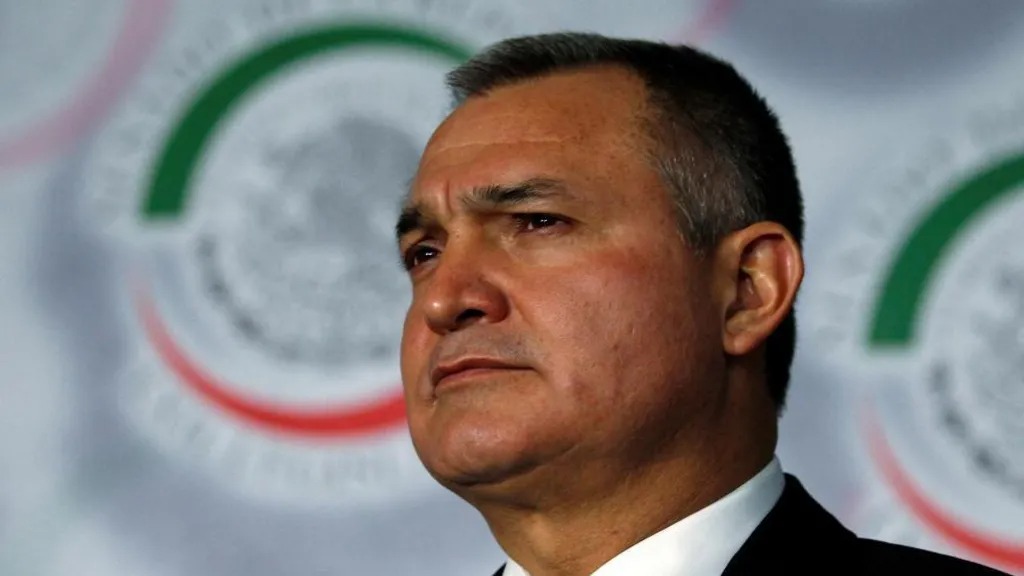Genaro García Luna, Mexico’s former Public Security Secretary, has been sentenced to 38 years in prison for his involvement in drug-related corruption. The high-profile conviction marks a stunning downfall for the man once seen as the face of Mexico’s aggressive drug war under President Felipe Calderón.
Appearing stoically in a dark suit, García Luna’s sentence was handed down in a New York courtroom, where he was also fined $2 million. The sentence, while not a life term, reflects the severity of his actions in aiding the Sinaloa Cartel, run by notorious kingpin Joaquín “El Chapo” Guzmán. García Luna’s legal team maintains his innocence, but the court found him guilty of taking millions in bribes from criminal organizations, resulting in his conviction last year.
As Mexico’s drug czar, García Luna led the charge against rival criminal groups, notably the Los Zetas cartel, while providing covert support to the Sinaloa Cartel in exchange for bribes. His actions raised suspicions of systemic corruption and fueled widespread distrust of Mexican officials during the drug war. Despite the extensive bribes, García Luna’s legal defense argues that his decisions were part of a pragmatic strategy in the war against Mexico’s cartels.
The case also sheds light on the contradictions within the drug war itself. Experts argue that García Luna’s tactics—backing one cartel while battling another—reflect the difficult choices made by authorities in a corrupt environment. While some view these actions as a necessary evil in combating Mexico’s crime landscape, others see them as blatant corruption, serving only to line officials’ pockets.
This conviction has far-reaching implications. It not only brings closure to a scandalous chapter in Mexican politics but also puts pressure on former President Calderón, who has consistently denied any knowledge of García Luna’s illicit dealings.
While García Luna’s conviction provides a sense of justice, critics question whether it will have a lasting impact on the drug trade. Deborah Bonello, a journalist and expert on organized crime, argues that the damage was already done long before the case came to trial. The legacy of García Luna’s tenure as Mexico’s security chief continues to shape the country’s ongoing struggle with cartel violence, highlighting the deep corruption that has long plagued the nation’s law enforcement.
As the war within the Sinaloa cartel intensifies, some believe that García Luna’s corrupt practices only fueled the fragmentation and violence of Mexico’s criminal landscape. The current Mexican administration, led by President Claudia Sheinbaum, faces the challenging task of addressing the legacy of this corruption and tackling the growing cartel wars that threaten the nation’s stability.
